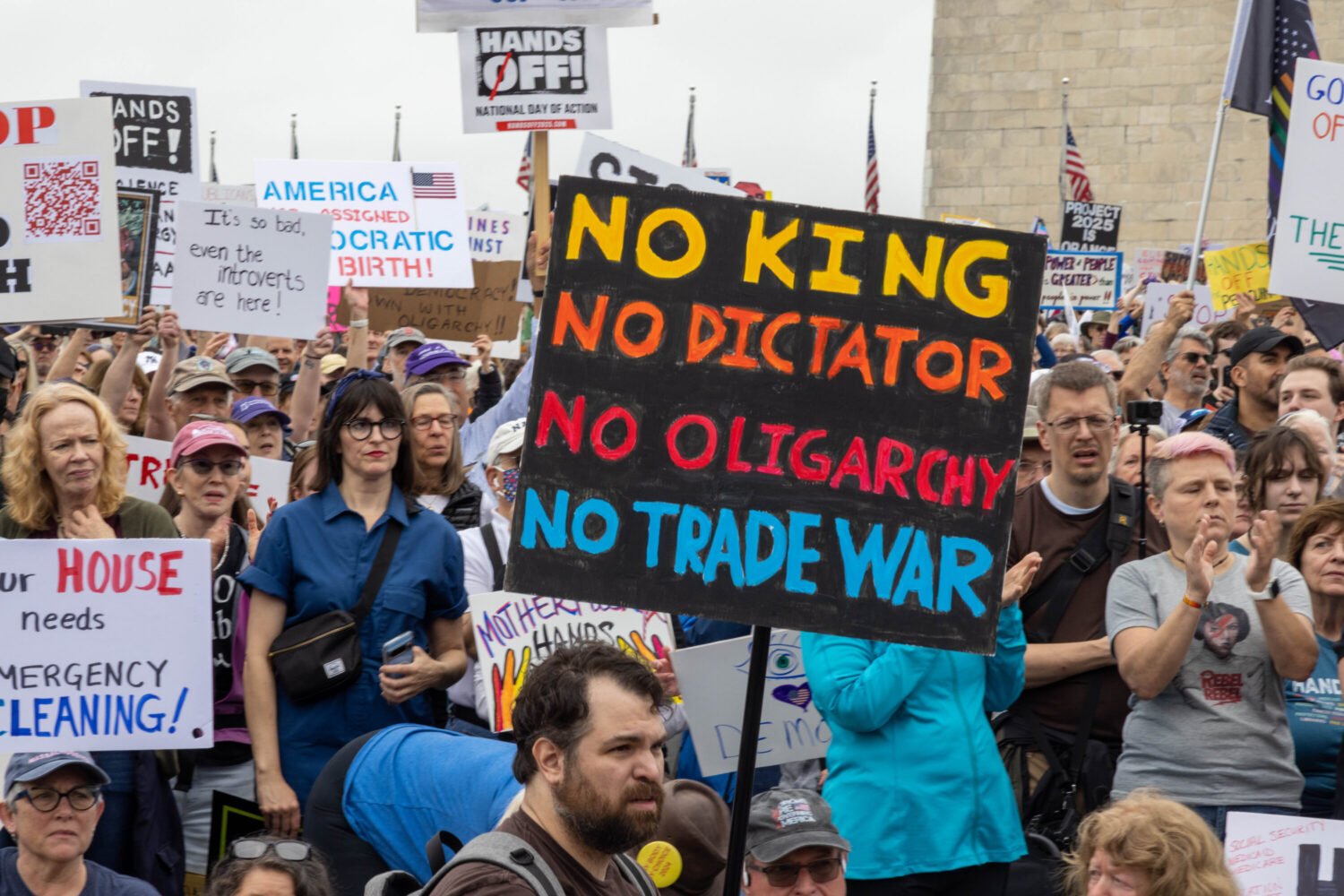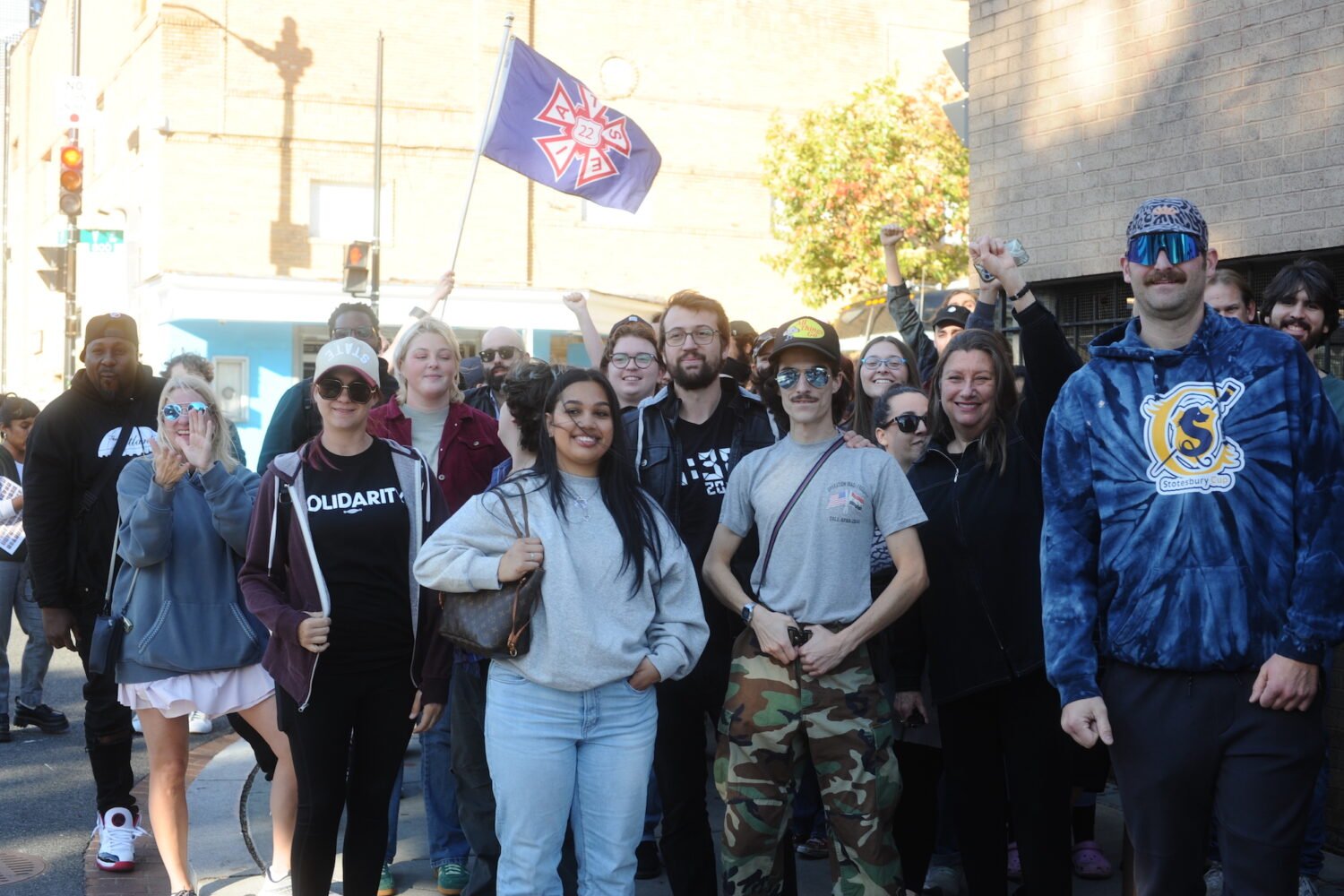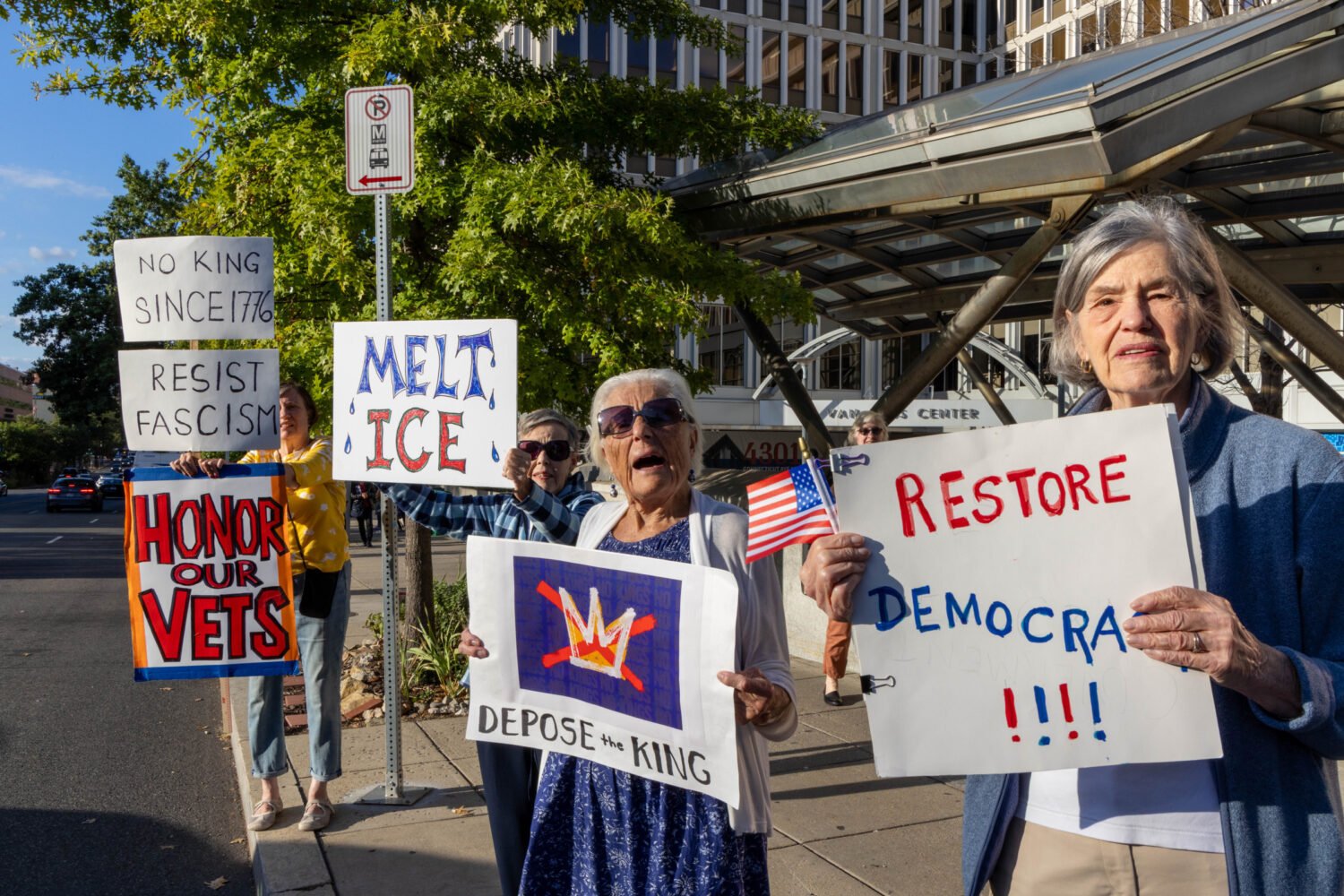Brad Pitt, Angelina Jolie, Paul Simon, George Clooney, Cher, Jessica Alba, Tony Bennett, Julianne Moore, Jennifer Garner, Ashley Judd, LeAnn Rimes, Don Cheadle, Fran Drescher, Lyle Lovett.
Which of these celebrities has not come here to lobby for a cause?
The answer is none—they’ve all been here. And as a glance at a copy of People magazine will confirm, there’s been an uptick in the star wattage on Capitol Hill.
“I’m amazed at the number of times I’ll pick up the newspaper and see a celebrity in town lobbying for something,” says Dan Glickman, the former Kansas congressman turned head of the Motion Picture Association of America, which lobbies for the US film industry.
“A big part of it is the excitement over the Obama administration,” says Mitch Bainwol, once a Senate staffer and now head of the Recording Industry Association of America, the music industry’s trade group.
The entertainment industry roundly backed Barack Obama’s 2008 candidacy, and there has been a swallow-like return of show-biz types to DC after an eight-year hiatus. While celebrity lobbying isn’t new, a new breed of star is doing it. Paris Hilton’s hit-and-run appearance here to support women in the arts notwithstanding, blond airheads jetting in for the cause du jour are seen and heard less.
“Celebrity does open doors on Capitol Hill,” says Robin Bronk of the Creative Coalition, an advocacy group. “But we get meetings with legislators because they know we’re not going to embarrass them.”
Add in some coaching from political insiders and the result is a number of celebs getting downright wonky as they learn to play the Washington game.
When Brad Pitt was on Capitol Hill in March, the Hollywood heartthrob caused the kind of feverish reaction you’d expect.
“It did get a little crazy around here,” says Regan Lachapelle, an aide to Senate Majority Leader Harry Reid. “Our staff, other staff, lots of reporters—generally of the female persuasion—were all lined up to catch a glimpse of him.”
Pitt was in Congress to generate support for his Make It Right campaign, which is building affordable and sustainable housing for victims of Hurricane Katrina. Lachapelle says that staffers who met with the star were impressed with his knowledge.
Predictably, almost every move Pitt made was chronicled by paparazzi. But a fair amount of Hollywood lobbying doesn’t attract mass-media attention.
Anne-Marie Johnson blends in easily among the blue suits gathering at the end of a recent day in the bar of Charlie Palmer Steak, a Capitol Hill eatery known for its power clientele. A veteran of prime-time television—Diff’rent Strokes, Hill Street Blues, In the Heat of the Night, and JAG—Johnson is here in her role as an officer of the Screen Actors Guild.
She landed via the redeye from Los Angeles at about 6 that morning; the meetings began shortly after she checked into her hotel an hour later. Throughout the day, in a stylish but muted pantsuit, she shuttled among congressional offices presenting SAG’s case on the right to unionize and the need to update a provision of the federal tax code affecting artists.
She discussed the stalled Employee Free Choice Act—meant to restore workers’ freedom to choose whether to unionize—with staffers of senators Arlen Specter, Susan Collins, Blanche Lincoln, Lisa Murkowski, Ben Nelson, Dianne Feinstein, Mary Landrieu, and Olympia Snowe.
Regarding the tax-code provision, she sat down with staffers of the Senate Finance Committee as well as of Senator Charles Schumer, Representative Charles Rangel, and the White House Office of Public Engagement.
Pols from New York and California—where many stars live and work—are obvious targets for lobbying, but why should others care?
“If you’re Arlen Specter, you should care because Pennsylvania has some of the strongest state filming incentives, and you would want a strong acting pool to have the choice to join a union to feel protected,” Johnson says without missing a beat.
“When you bring in someone with name recognition to a cause, that’s more than half the battle because lots of causes have to fight just to get on the radar screen of politicians,” says Dennis Wharton of the National Association of Broadcasters. “The right person who’s committed and substantive on an issue can be very effective to get Congress to increase funding and generate publicity for a cause. If it wasn’t effective, you wouldn’t see this parade of celebrities through the Rayburn building.
“But you’ve got to be careful who you present as your poster child,” Wharton cautions. “If it’s way too obvious that the celebrity was brought in just for celebrity stature, it can be a recipe for disaster. You risk the chance of being mocked.”
To that point, Dan Glickman recalls his time on the House Agriculture Committee in the early 1980s, when a farm crisis hit. “We had Jessica Lange and Jane Fonda come to a committee hearing, and Pat Roberts”—like Glickman, then a Kansas congressman—“comes into the meeting to say he just had to come because of the witnesses’ unique and long-term expertise on agriculture.”
The stars were “somewhat bemused” by the sarcasm, Glickman says, “and we were exploiting them a little, true. But they did know lots of anecdotes, and Lange did come from a rural background.”
At least Roberts came to the hearing. The 2002 appearance of the Backstreet Boys’ Kevin Richardson before a Senate subcommittee on the environmental hazards of mountaintop mining is considered by many in the influence business to be among the most dubious uses of celebrity.
Richardson was born and raised in coal-belt Kentucky, and after he got rich and famous he started an environmental foundation. But his direct knowledge of mountaintop coal mining was limited to two plane flights over coal fields. He did not like what he’d seen, he told the committee.
The California Mining Association coolly pointed out that the Web site for Richardson’s foundation made no mention of mountaintop mining, and his many fan sites focused on facts such as “his eyes are a bluish-green, he is a Libra, and his fans call him Kev or Kevy-Kev or Pumpkin.”
Ohio senator George Voinovich, then a member of the subcommittee, refused to attend while Kevy-Kev testified, saying: “It’s just a joke to think that this witness can provide members of the United States Senate with information on important issues. We’re either serious about the issues or we’re running a sideshow.”
Teenage girls attending the hearing burst into applause when Richardson finished testifying, and media coverage was heavy, but his testimony was ignored by those who counted.
Aware of such risks, movie actor Terrence Howard (Iron Man, Ray, and Crash) takes a more modest approach. In town to support Children Uniting Nations, which advocates for at-risk and disadvantaged children, Howard was planning to join others from the organization in meetings with legislators.
“But I won’t be doing any talking,” he told me at a dinner at Teatro Goldoni the night before the meetings, noting that he was fairly new to CUN. “That would be pretentious of me. My place right now is to listen.”
The Creative Coalition plans and shapes its lobbying efforts like those of any K Street shop, says Robin Bronk: “We train our people very carefully to speak from the heart about issues, but we also prepare them for the question ‘Why are you doing this?’ Before we even come to Washington, our people go through several boot camps so they can be armed with both personal stories about the issues and all the facts and figures.”
When the New York–based coalition comes to town, often led by co-presidents Tim Daly (Wings, Grey’s Anatomy) and Tony Goldwyn (Ghost, Law & Order), it meets with members or staff. Because one issue is governmental funding for the arts, the appropriations committees of both the House and Senate are regular stops.
While a tax or union matter can directly affect a celebrity’s livelihood, and while celebs who’ve suffered from a disease can be good advocates for more research into treatment or cures—Michael J. Fox on Parkinson’s or LeAnn Rimes on psoriasis—a celebrity needs different credentials to establish bona fides when it comes to more abstract causes.
In Congress, the only name and face that’s as associated with Tibet as the Dalai Lama’s is Richard Gere’s. The star of Pretty Woman, An Officer and a Gentleman, and American Gigolo has lobbied lawmakers on Tibetan issues for 20 years. His celebrity gets him appointments with such heavy hitters as Speaker of the House Nancy Pelosi and Senator John McCain. But it’s Gere’s beliefs and commitment that make lawmakers pay attention to him, says Mary Beth Markey of the International Campaign for Tibet.
“Richard is a practicing Tibetan Buddhist, so he speaks with profound appreciation for religious freedom and Tibetan identity,” Markey says. “He does homework—he reads research, he travels to Tibet and Tibetan communities in India and Nepal.”
Gere’s fame has opened doors in Congress, Markey acknowledges, “but building relationships like he has with Pelosi isn’t based on celebrity but on many discussions on strategic matters. He doesn’t just know the members but all the key staffers, too.”
Markey recalls first meeting Gere in 1989, when she worked for Rhode Island’s senator Claiborne Pell. “I was young and single, and Richard was at the zenith of his leading-man roles, and holy cow, I was starstruck. But all he asked about was what angles was Senator Pell most interested in, what drives his support for something.”
The fascination Hollywood and Washington have with each other dates back to the earliest days of motion pictures. “To be in a senator’s office is just a thrill,” Anne-Marie Johnson says. “I wish my parents were alive to see it.”
Erik V. Huey, an attorney with Kilpatrick Stockton, advises show-biz clients on lobbying; the Screen Actors Guild is among his clients. I ask if pols ever try to get autographs from stars he’s shepherding around in Congress.
“God, yes!” he says. “Some of the most ardent anti-Hollywood Republicans are among the first to jump in line for an autograph.”
“It’s funny to watch how each covets what the other has,” says Todd Flournoy, who recently left the Motion Picture Association with plans to launch a consultancy to help stars’ lobbying efforts.
In the annals of celebrity activism, most observers agree that the rock star Bono set a new standard when he began lobbying Washington in 1999. His initial cause, canceling Third World debt, was not the first thing you’d think a famous rocker would take up. But he did, with a vengeance and lots of preparation.
He also left his ego in his hotel suite.
“When Bono came around, it was never about him,” says John Feehery, a GOP strategist who once worked for senior House Republicans. “It was about the issue, and he knew it, and he did everything in a bipartisan way. He was passionate, he was committed, but he was also very humble. He didn’t assume everyone knew who he was. He would go to breakfast with staff and get to know them.”
Bono succeeded in getting President Bill Clinton and a Republican-controlled Congress to agree on canceling hundreds of millions of dollars owed the United States by developing countries. When he began lobbying to increase Western funds for AIDS prevention and treatment in Africa, Bono got President George W. Bush to propose a record amount—$15 billion—for the cause.
“Suddenly there seemed to be a big change,” Flournoy says. “Stars were doing real work, not just press conferences.”
“Bono’s taken it all to a different dimension,” says Mitch Bainwol of the Recording Industry Association. “The thing about musicians, they’re a little like politicians. They make careers out of connecting with people. It’s about a voice, yes, but also a presence onstage. When I think about musicians, they’re very similar to politicians in that they’re very good at connecting with people.”
Actors aren’t far behind. “Similar impulses propel people into politics or show business, especially acting,” says Huey. “Many of the same skill sets are in play, like the power of persuasion.” Just as a pol tries to persuade people to believe in his candidacy, “an actor tries to persuade an audience to believe in his character.”
Huey says one of the most effective persuaders he’s ever worked with is Fran Drescher of TV’s The Nanny. “She’s lobbied on broadcast decency legislation, arts funding, and cancer research, and she’s incredible,” he says. “When people sit down with her, they’re not ready for this woman to start quoting facts, figures, and statistics, all without books or notes.”
Drescher also can improvise. In search of converts to supporting arts funding, she once met with Kansas senator Sam Brownback, who told her he didn’t think the government should be spending money on such a thing, Huey recalls.
“She said, ‘Senator, you recently sponsored legislation on violent video games. What if kids had something like an arts program that could be an alternative to playing violent video games? Isn’t that something the government ought to create incentives for?’ ”
Brownback said he hadn’t thought about it like that.
A cancer survivor, Drescher also rounded up congressional support to pass the Gynecologic Cancer Education and Awareness Act of 2005.
Angelina Jolie is said to be “drilled down” in the minutiae of the international refugee crisis, having seen it up close many times. For eight years she has lobbied to enact legal protections for unaccompanied refugee children coming to the United States. Last December, President Bush signed into law the William Wilberforce Trafficking Victims Protection Reauthorization Act, which provides those protections.
“How you make an impact in Washington is different from how you make it in LA,” says Trevor Neilson of the Global Philanthropy Group, which helps Pitt, Jolie, and others. “I’m fairly new to LA, but when you’re advocating on issues in Washington, there’s a greater expectation of real expertise.
“There are so many cheesy events we get invited to in LA—red-carpet parties, fundraisers—and lots of people attend thinking they’re creating social change. We almost always recommend that our clients not attend such events because you can’t party your way to social change. But there’s a perception in Los Angeles that you can.”
Anne-Marie Johnson puts it more bluntly: “The average person does perceive actors as stupid, and most are. But some of us take our notoriety seriously.”
This article first appeared in the August 2009 issue of The Washingtonian. For more articles from that issue, click here.

















